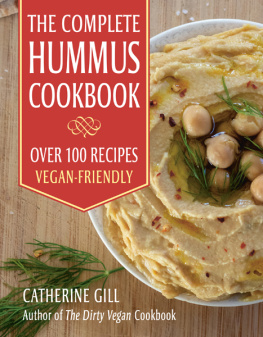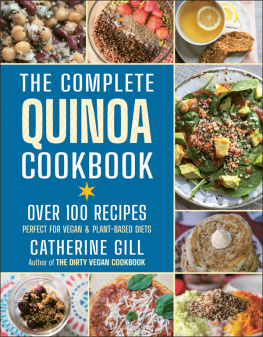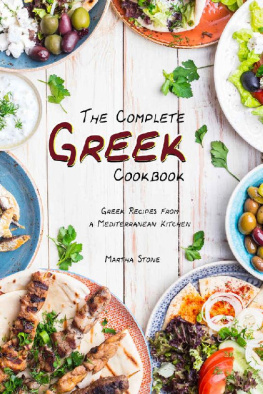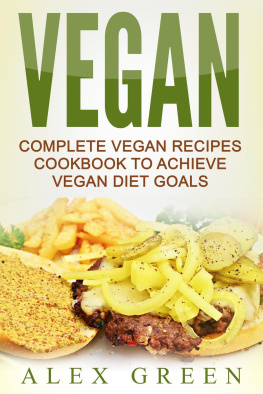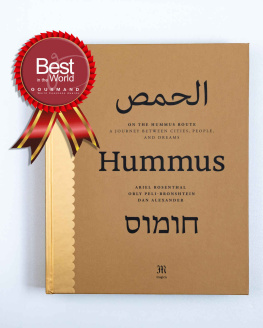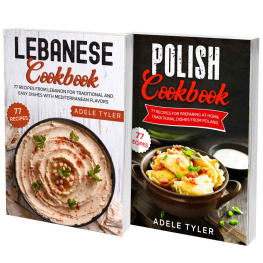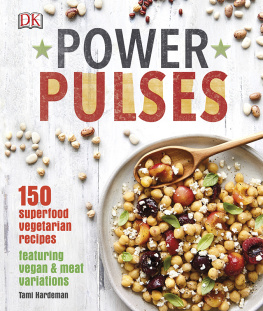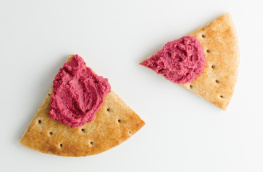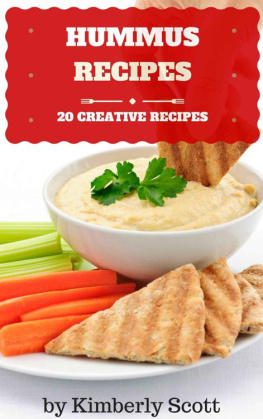PREFACE
I T HAS LONG been a passion of mine to share delicious vegan food recipes with the world. In my first book, The Dirty Vegan Cookbook, I spent a good bit of time raving about my love for hummus. In fact, I can often be heard professing my adoration for hummus, especially on social media. So, it made perfect sense for me to work on a project like this bookif anything, it actually feels overdue! And after seeing the wonderful response and enormously positive feedback from readers regarding my last book, and discovering how many of you share the same love for hummus as I do, I knew that I had to do it. I had to create a cookbook centered around the wonderful creation that is HUMMUS!
Over the years, I have used this delightful chickpea puree in practically everything. I have used hummus as a sauce base or to thicken up sauces; Ive made dips and dressings where hummus was the star of the show; and while you might not be able to believe it, I have even used hummus in desserts and sweet dishes!
Just waitonce youve made a few of the delicious recipes in this book, youll be a believer, too. There arent many meals that our favorite garbanzo spread cannot work well in. I truly do believe that hummus can be used for any culinary purpose, in any way you please.
Putting together this collection of my original hummus and hummus-inspired recipes has been so much fun to work on. My hope is that it will be even more exciting for you as a reader to learn more about this underrated spread, all while learning how to make hummus for yourself or how to use it in ways you previously thought unimaginable!
I know full well how much the vegan community loves hummusThe CompleteHummus Cookbook is for you, as well as for all of my friends who want to eat a more plant-based diet, and for ALL the hummus-lovers out there! And of course, every vegan thing that I do is for the animals. So, cheers to the animals and to the betterment of their livesmay it happen sooner rather than later!
Peace always,




CONTENTS
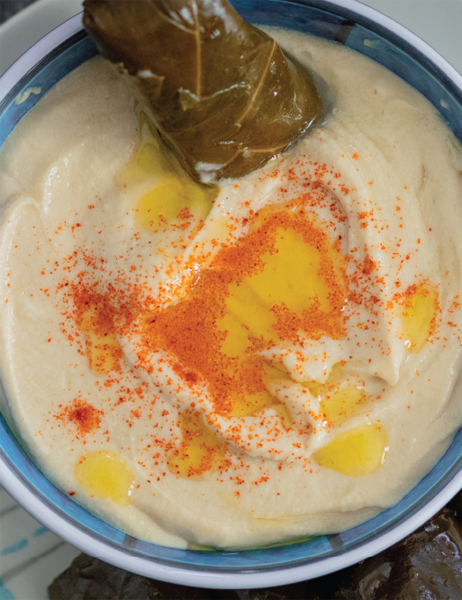

Hatherleigh Press is committed to preserving and protecting the natural resources of the earth. Environmentally responsible and sustainable practices are embraced within the companys mission statement.
Visit us at www.hatherleighpress.com and register online for free offers, discounts, special events, and more.
THE COMPLETE HUMMUS COOKBOOK
Text copyright 2019 Catherine Gill
Library of Congress Cataloging-in-Publication Data is available upon request.
ISBN: 978-1-57826-821-4
All rights reserved. No part of this book may be reproduced, stored in a retrieval system, or transmitted, in any form or by any means, electronic or otherwise, without written permission from the publisher.
COVER AND INTERIOR DESIGN BY CAROLYN KASPER FOOD STYLING AND PHOTOGRAPHY BY CATHERINE GILL AND JASON GILL
Printed in the United States
10 9 8 7 6 5 4 3 2 1
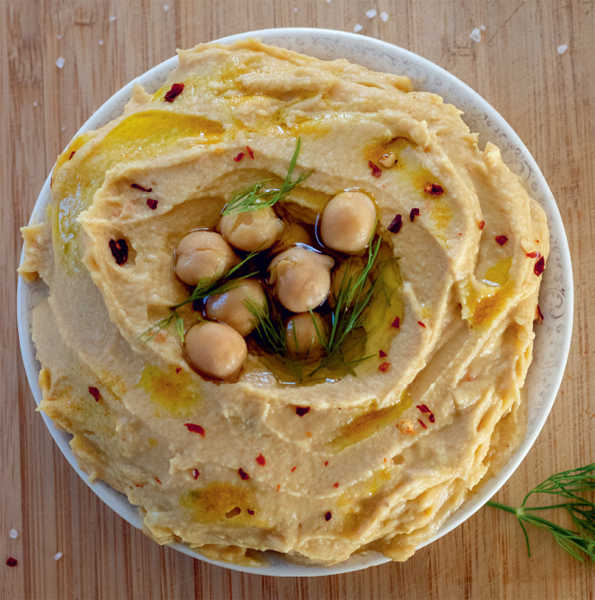
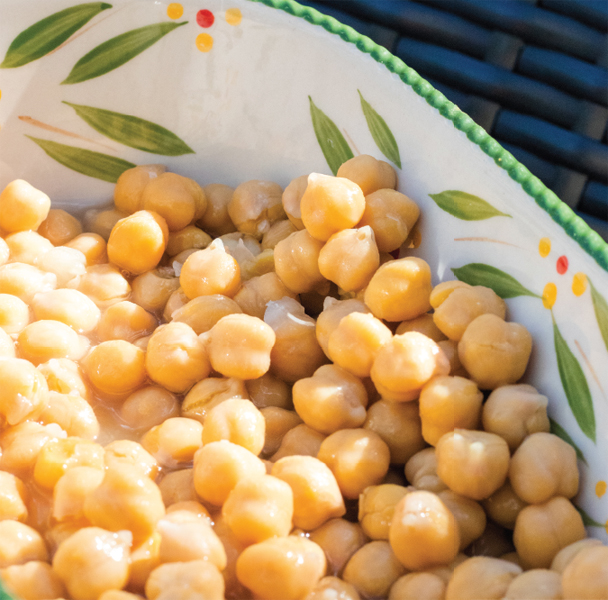
A LITTLE HUMMUS HISTORY
W HILE THERE ISNT a ton of information about the precise origins of hummuslike when exactly it was invented and by whomhistorians estimate the chickpea spread first came into use in 13th century Egypt. At that time, chickpeas were found in abundance in the Middle East, much as they are still to this very day. The word hummus is actually an Arabic word, which simply means chickpea.
The chickpea, or garbanzo bean (scientific name Cicer arietinum, for all the food nerds like me) first saw mention in Arabic cookbooks and recipes starting in the 14th century, but there has never been any historical declaration found that gives credit to hummus creator or where even any hints to where the idea first came from. One of its earliest cookbook appearances is in a book entitled Kita Wasf al-Atima al-Mutada, which translates from Arabic as The Description of Familiar Food, though the hummus recipe found in that book is slightly different than the hummus recipes we see in todays standard modern recipe. Later cookbooks containing hummus recipes also vary in the ingredients list: some omit garlic, some leave out the lemon juice in favor of vinegar; some hummus recipes in the 14th century didnt even include tahini (unthinkable for present-day hummus makers).
Despite this, to this day researchers still know frustratingly little about hummus humble beginnings beyond its vague ancient timestamp. Was it a purposeful recipe, created for a specific reason? Or was it perhaps invented out of necessity at a time when chickpeas were flourishing in availability? Im not going to liemy curiosity is piqued and I want to know! And maybe we will find out, some day; perhaps an ancient diary or some kind of other archeological artifact will be recovered that tells the whole tale. After all, hummus surely must have had its fans right from the start!
HUMMUS AROUND THE WORLD
Hummus is a pretty popular dish in places throughout the world, especially in places like the Near East, Middle East and Greece. Preparation and style can vary from country to country (and even city to city), usually due to whatever the ingredient availability was when hummus first became a trend in that area. Over time, these regional variances have become traditional and signature recipes of those particular geographical areas. For example, Palestine and Jordan prepare laban ma hummus using yogurt instead of tahini, and they use butter instead of olive oil (again, likely due to tahini and olive oil being unavailable when hummus first came to town and started being prepared in dishes).
In researching all things hummus while putting together The Complete Hummus Cookbook, I made sure to take inspiration from how hummus is made around the globe. In the recipes later on, you will notice that I experiment with these different techniques; you will even see vegan butter in place of olive oil, and lots of other fun and delicious hummus variations!
Drawing from the many regions where hummus is and has always been extremely popular, here are a few fun facts about the areas where hummus has long been a staple:
Levant
The Levant is a term which refers to a large geographical region located between Turkey and Egypt, and is made up of Aleppo, down to Syria and Jordan, and includes Israel and Palestine, just to name a few of the countries. Fascinatingly, the Levant is known as the heartland of hummus, and is the area where some of the earliest information about hummus comes from. This has led experts to believe that hummus was born somewhere in the Levant, which makes sense: the Levant countries are practically Egypts neighbors. Heres a fun fact about the Eastern Mediterranean region of the Levant: it is not only believed to be the birthplace of hummus, but agriculture, writing, glass and even the wheel!

